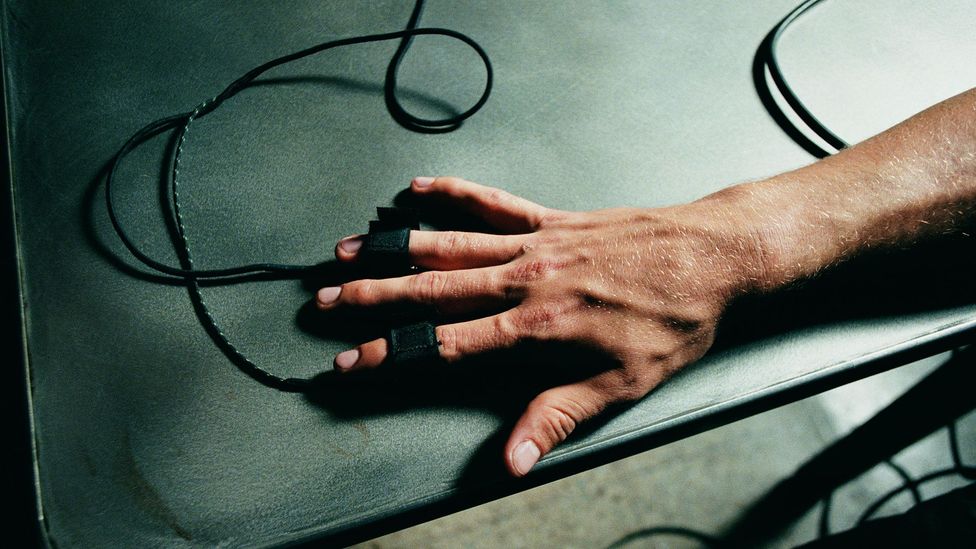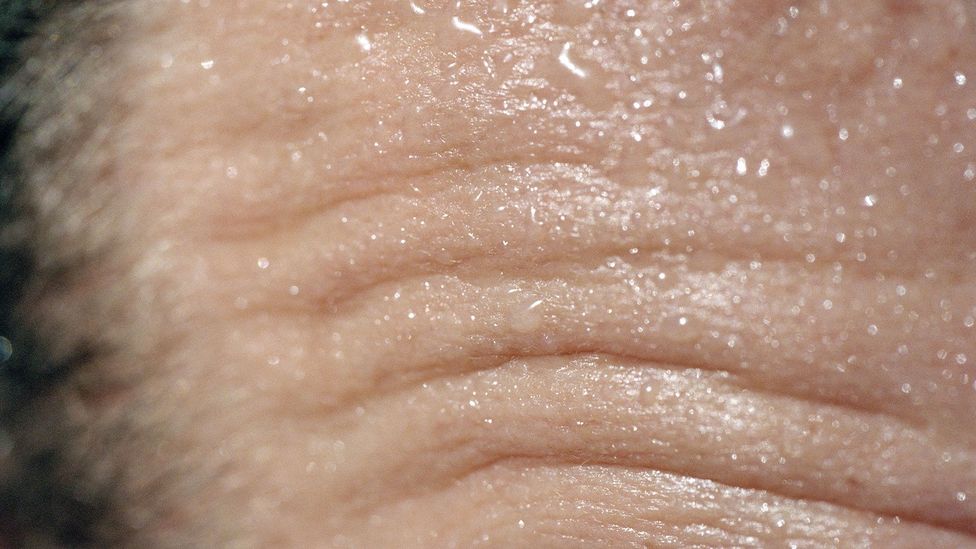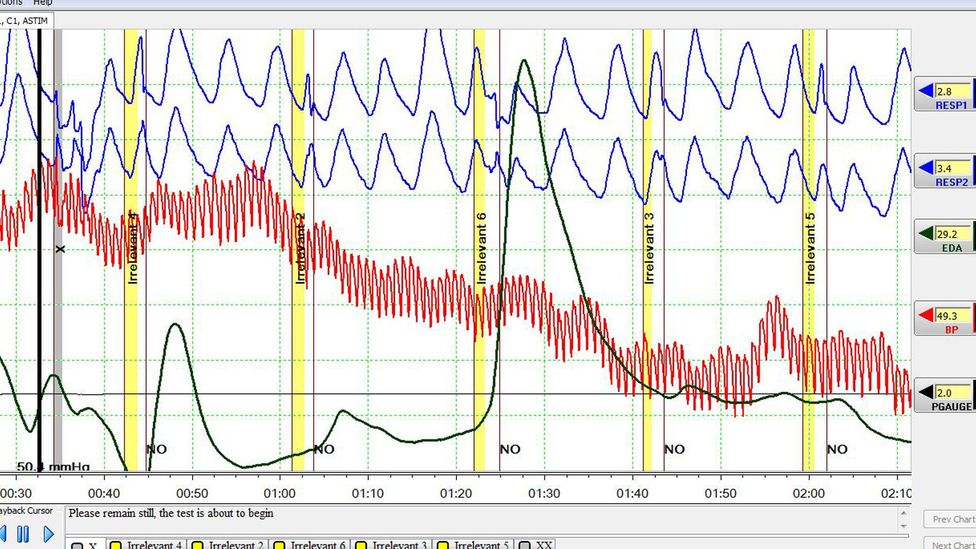Is It Easy to Beat a Polygraph
Can you beat a lie detector test?
(Image credit:
Getty Images
)

Just how easy is it to trick a polygraph? Tiffanie Wen tries for herself.
"Polygraphy is not a game," Eran Gazit, cofounder of the Gazit Polygraph Institute warned when I called about taking a polygraph for this story. "It's impossible to test the system unless you have skin in the game. You need to have something to lose, like your job or marriage, or freedom."
Nevertheless, I'm here to interview his father, Mordi Gazit, who worked for the Israeli Police Polygraph Unit for 10 years before he cofounded the institute in Tel Aviv.
I'm also here to try to successfully lie my way through a polygraph.
Which is how I found myself sitting in a comfortable chair with two straps wrapped around my chest, metal devices covering my fingertips and a blood pressure cuff hanging around my arm. The wires lead into a box that resembles a cable modem, which in turn is continuously sending data to Mordi's laptop.
Commonly known as lie detector tests, polygraphs work by measuring physiological changes in the body, in this case respiration rate, pulse, blood pressure and galvanic skin response, which measures the electrical properties in the skin. Other methods can involve measuring pupillary changes and brain activity using an fMRI.

Polygraph tests are wrong 10-15% of the time (Credit: Getty Images)
Polygraph evidence is generally not admissible in criminal court in the US and most of Europe. But the authorities have found other uses for them. In the UK, probation officers use polygraphs to monitor serious sex offenders, which has resulted in dozens of people returning to jail. In the US, polygraphs are used to screen candidates for the CIA and other government jobs.
Walt Goodson, the president of the American Polygraph Association spent 25 years in the Texas State Police, and emphasises their usefulness in conducting police investigations. "They are extremely helpful in focusing exams. It's a quick and easy way to bring in a suspect and decide if we need to look more into that person or if we need to look for someone else in our investigation."
And helping people cheat on polygraphs has shown to have serious legal consequences. A former Oklahoma City police officer was recently sentenced to two years in prison for coaching undercover Federal agents who said they wanted to cover up their crimes.
Trying to cheat
Yet could an untrained person like me still fool the examiner?
From the moment I meet Mordi, I feel like I'm in the presence of a government agent. The 69-year-old has experience written all over his face. He's professional, speaks confidently and looks me dead in the eye as he asks for my press credentials. I think to myself that even if I can trick the machine, this guy would know if I was lying. I already feel nervous, as if I'm going to get caught for something I haven't done. I'd later discover that this is part of the problem with the tests.

Sweating is one measure of lying that you can't control (Credit: Getty Images)
A common strategy examiners employ involves asking a combination of both relevant (Did you rob the bank?) and irrelevant questions (Have you ever taken anything that didn't belong to you?). Since no one can really answer 'no' to the irrelevant questions without lying somewhat, the theory is that the physiological response to the irrelevant questions serves as a type of baseline. The idea is to get a decent profile of what it looks like when you're lying when unstressed – this helps the person reading the machine to be more confident that they are observing a response to a stressed lie than if they were only comparing with obvious truths (such as 'are you a man?').
George Maschke, who has run antipolygraph.org since 2000, says the strategy for beating a polygraph is to recognise the control questions and augment your reactions to them.
"When you're asked a control question, like 'Did you ever lie to get out of trouble?' you can try to solve a math problem as quickly as you can in your head and that mental activity will tend to raise your sweating, your breathing, et cetera," he says. "If you have a stronger reaction to the control questions than the relevant questions you will pass the test."
Goodson says that although he can successfully defeat a polygraph against novice students, defeating an experienced examiner is harder. "Altering human physiology is not difficult, and there are many anti-polygraph websites that teach this. What these websites can't teach is how to alter one's physiology that appears to a polygraph examiner as a genuine or natural response to a polygraph exam question," he says. "When polygraph examinees try to alter or control their bodies' normal reactions, it creates abnormal data that is easily recognisable by a polygraph examiner trained to detect these unnatural physiological responses."
Some researchers are also concerned that when wrong, the tests produce more false positives (meaning innocent people who wrongly fail) than false negatives (meaning guilty people who wrongly pass), a phenomenon that can be seen in a 2004 report on the validity of polygraphs by the British Psychological Society.
According to Goodson, some people who are telling the truth can fail polygraph tests by trying too hard to control their body's responses. "When truthful persons alter their physiology, thinking they will help themselves pass the polygraph, polygraph literature suggests that many of these truthful examinees are classified as deceptive when they do so," he says.
Many scientists are concerned that the theory behind lie detectors is faulty, since a physiological response is not necessarily linked to lying. A 2011 meta-analysis by the American Polygraph Association found that polygraph tests using comparison questions had incorrect outcomes about 15% of the time.
The type of test I'm trying to pass however is sounder, and slightly more difficult to cheat. Since I'm doing this for a story, Mordi has devised a way for me to test the system that doesn't require comparison questions. He asks me to write a number between one and seven on a piece of paper and will monitor my physical response as I try to lie my way through each number, as if I didn't write anything at all.

The pace of your heartbeat changes if you're faced with a mentally taxing task (Credit: SPL)
It's a simplified version of the Guilty Knowledge Test, which is used in investigations after a known crime. An examiner presents a potential suspect with specific information unrelated and related to a crime to test whether examinees have a response to the relevant items. Take a bank robbery for instance. You could present the amount of money that was stolen from the bank among other figures, or a genuine ransom note that was passed to the bank teller among other notes created by the police.
Though Maschke says it's still possible to cheat through it, the Guilty Knowledge Test is considered more theoretically sound than the comparison strategy and less controversial by scientists, according to the report by the British Psychological Society. The 2011 meta-analysis conducted by the American Polygraph Association found that Guilty Knowledge type tests were incorrect closer to 10% of the time.
Far from perfect – but still, it caught me out. I failed spectacularly. There is a screenshot of my physiological reactions below. See if you can tell when I lied.

(Credit: Gazit Polygraph Institute)
(How to read the chart: The x-axis indicates time. The yellow columns indicate each question, beginning with number four and moving onto number two, six etc. Blue lines: respiratory rate. Red line: pulse and blood pressure. Thin black line: physical movement in the chair. Thick black line: galvanic skin response.)
If you look at the thick black line in particular, you can probably guess that I lied about the number six. And Mordi spotted it too.
-
This story is part of new BBC Future series called 'Experimentality': Tiffanie Wen analyses popular wisdom, technology gadgets and much more, by testing it for herself and using science to separate the truth and myths. If you'd like Tiffanie to test something out, let her know by tweeting @tiffaniewen .
Join 500,000+ Future fans by liking us on Facebook , or follow us on Twitter , Google+ , LinkedIn and Instagram.
gresswellliall1959.blogspot.com
Source: https://www.bbc.com/future/article/20160412-can-you-beat-a-lie-detector-test
0 Response to "Is It Easy to Beat a Polygraph"
Post a Comment